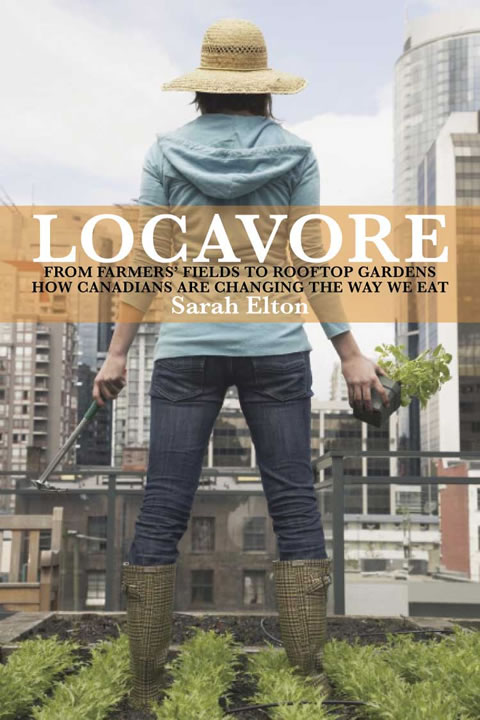Sarah Elton’s daughter recently came home from a birthday party with a cookie in the shape of a pig, frosted pink – a cute and seemingly innocuous treat. A food writer and frequent CBC Radio food columnist, Elton was appalled, however, to learn the treat had been made in China and transported all the way to Toronto. “This cookie had a carbon load of a coal-fired power station,” writes Elton (BA 1998 UC, MA 1999).
So begins Locavore (HarperCollins Canada), Elton’s comprehensive summary of the state of the local, organic, sustainable food movement in Canada. She senses the beginning of a new nutritional era, but she’s open to the possibility that the very term “locavore” will soon seem so 2007 – the year the Oxford American Dictionary designated it word of the year.
U of T Magazine poll
Do you make an effort to buy locally produced food?
With farmers’ markets springing up all over the country, top chefs specializing in local cuisine and even Loblaw promoting offerings from nearby farms, the movement seems to be making dramatic headway. But, Elton is quick to acknowledge that the country’s organic farms couldn’t begin to feed all Canadians at present – let alone the hungry export market.
In an effort to describe the food system’s current state, Elton criss-crosses the nation, visiting a beef farm on a tidal plain in British Columbia’s Fraser River Valley (around which a suburb has grown), hydroponic greenhouses in rural Ontario and organic market gardens in Nova Scotia. She speaks with everyone from the woman who convinced U of T to source more of its food from local farmers to an artisanal cheesemaker in Quebec; from the ultra-efficient manager of the Ontario Food Terminal to folksy urban agronomists intent on growing crops on their rooftops. She is particularly gifted at transporting the reader to the places she visits, from Sooke House, the restaurant and boutique hotel at the tip of Vancouver Island, which Gourmet (RIP) named the best restaurant in the world for authentic local cuisine to a native community seeking to rediscover traditional foods.
For Elton, though she canvasses the arguments for and against the internationally oriented food market, the bottom line is environmental – big agriculture is sucking up too much energy and causing too much pollution. She doesn’t propose precise solutions, but is heartened to see the local food movement poking through so many cracks in the pavement. Elton ends her book with another cookie – shortbread made in a local bakery from heritage grain flour sourced in Saskatchewan. Its raw material and manufacture kept Canadians employed, its transport placed less of a burden on the environment and, she concludes, “It was delicious.” Call it patriotism of the plate.







No Responses to “ Mealtime Patriotism ”
I work in the food industry, and have been in search of a collection of stories about local food in Canada. I bought Sarah Elton's book the day it came out, and loved the personal accounts. Thank you for sharing these stories!